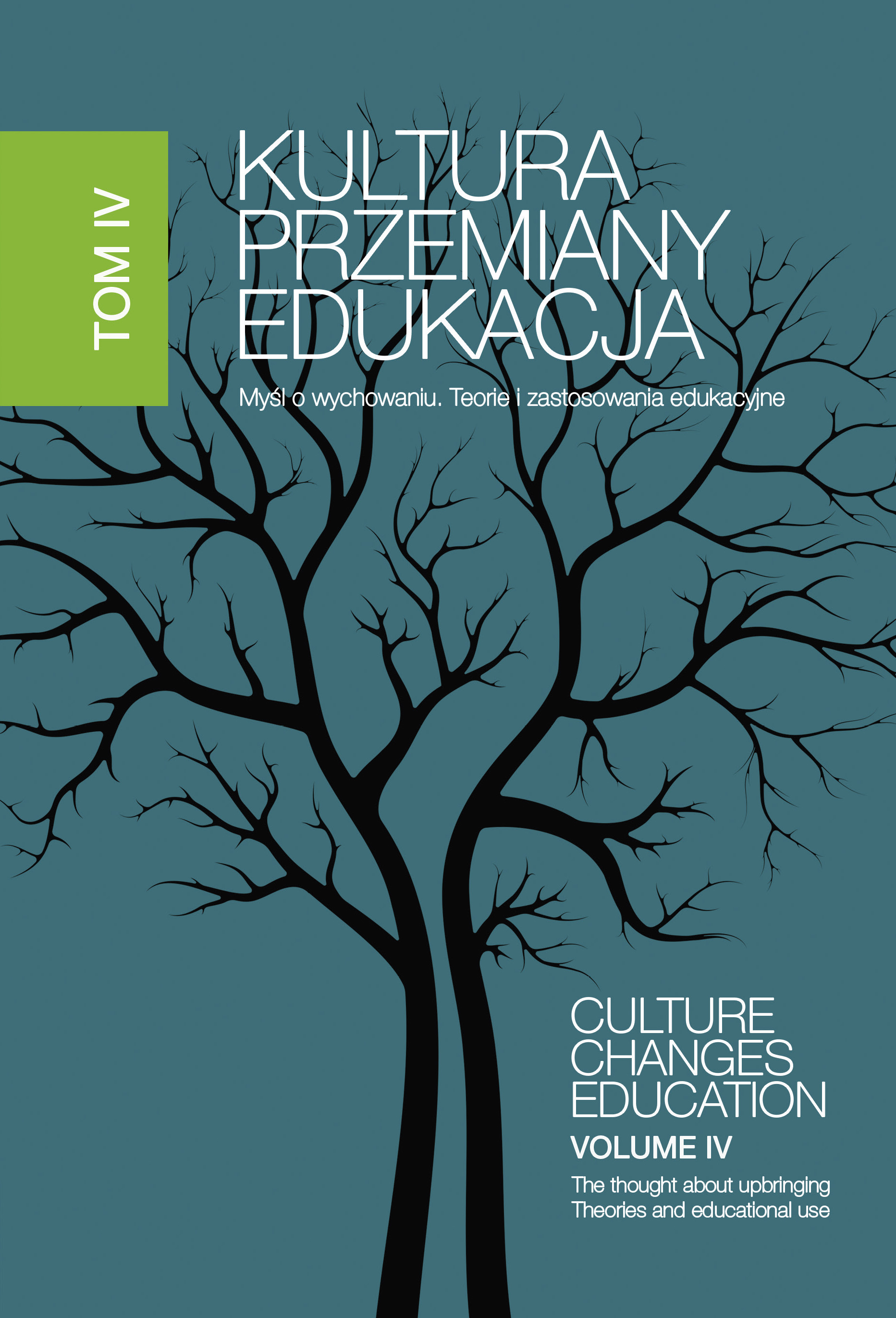Education for creation in the theory and practice of early childhood education
DOI:
https://doi.org/10.15584/kpe.2016.4.13Keywords:
education for creation, examination of creativity, fluency, flexibility, originality of thinking among pupils of early childhood educationAbstract
The article presents briefly a history of the development of education for creation thought, presenting the figures of the most distinguished Polish educators and psychologists who have made a significant contribution to the development of the discipline called pedagogy of creativity. In the contents there are also references to the practice of education for creativity with special emphasis on the early childhood education. I point to the legal conditions of the current educational practices in activities developing creative attitude of pupils from classes I–III, and present the results of creative thinking in different aspects: fluency, flexibility and originality of thinking and sensitivity to the problems. The test study exploring the ability of creative thinking was conducted amongst 204 students in 3rd classes and 10 teachers who teach in these classes. The analysis indicated that the students represent the average level of creative thinking despite the fact that only 1 teacher used the additional program stimulating creation and creativity of the students.
Downloads
References
Bieluga K., Rozpoznawanie i stymulowanie cech inteligencji oraz myślenia twórczego w domu i szkole, Kraków 2009.
Cudowska A., Edukacja twórcza jako wspomaganie dziecka w rozwoju – mit czy rzeczywistość? [w:] Edukacja dziecka – mity i fakty, red. E. Jaszczyszyn, J. Szada-Borzyszkowska, Białystok 2010.
Czelakowska D., Stymulacja kreatywności językowej dzieci w wieku wczesnoszkolnym, Kraków 2005.
Dobrołowicz W., Psychologia twórczości w zarysie, Warszawa 1982.
Jąder M., Krok …w kierunku kreatywności. Program stymulowania twórczości na etapie edukacji przedszkolnej i wczesnoszkolnej, Kraków 2005.
Krasoń K., Skala postaw twórczych versus odtwórczych. Podręcznik do testu w wersji dla szkoły podstawowej klas I–III, Kraków 2011.
Kujawiński J., Rozwijanie aktywności twórczej uczniów klas początkowych, Warszawa 1990.
Nęcka E., Psychologia twórczości, Gdańsk 2005.
Pietrasiński Z., Myślenie twórcze, Warszawa 1969.
Popek S., Analiza psychologiczna twórczości plastycznej dzieci i młodzieży, Warszawa 1978.
Pusz S., Rozwijanie aktywności twórczej uczniów klas I–III w propozycjach aktualnych programów kształcenia [w:] Odkrywanie talentów: wybrane problemy diagnozy, wspierania rozwoju i edukacji, red. K. Barłóg, A. Mach, M. Zaborniak-Sobczak, Rzeszów 2012.
Rozporządzenie MEN z dn. 30.05 2014 r., DzU z 18.06.2014, poz. 803, zał. nr 2.
Stawinoga R., Twórczość językowa dziecka w teorii i praktyce edukacyjnej, Lublin 2007.
Szmidt K.J., Pedagogika twórczości, Gdańsk 2007.
Szmidt K.J., Bonar J., Żywioły: lekcje twórczości w nauczaniu zintegrowanym, Warszawa 1998.
Tocka M., Kolorowe zadania: ćwiczenia wspierające rozwój zdolności twórczych dzieci w młodszym wieku szkolnym, cz. 1 i 2, Kraków 2003.
Uszyńska-Jarmoc J., Podróże. Skarby. Przygoda. Podręcznik i program rozwijania twórczości, samoświadomości oraz dyspozycji autokreacyjnych dzieci klas I–III, Białystok 2005.
Uszyńska-Jarmoc J., Twórcza aktywność dziecka. Teoria – rzeczywistość – perspektywy rozwoju, Białystok 2003.
Zborowski J., Rozwijanie aktywności twórczej dzieci, Warszawa 1986.
Downloads
Published
How to Cite
Issue
Section
License
Copyright (c) 2016 KULTURA – PRZEMIANY – EDUKACJA

This work is licensed under a Creative Commons Attribution-NoDerivatives 4.0 International License.


